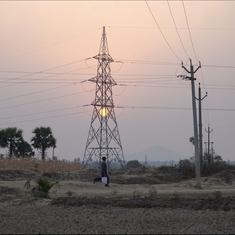Now the result, less an election and more a “referendum on Netanyahu”, has turned up what seems like a draw. Exit polls indicate that Israel’s embattled prime minister might not, after all, have been found wanting.
The results will continue to emerge over several days ‒ the soldiers' votes will be the last to be verified – but the question of which direction the government will take over the coming two years depends on the coalition that will be formed.
Frayed tempers
Recent months have seen a rapid decline in relations between Netanyahu and the Obama administration, as Netanyahu has tried to curry favour with the American right. Meanwhile, the prime minister’s statement this week that if he is elected, there will be no chance of a Palestinian state bodes ill for the peace process and the two-state solution that has been promoted by the opposition, the Zionist Union.
Netanyahu’s shift from the tone of reconciliation expressed during his speech at Bar-Ilan University in 2009, in which he invited Arab leaders to discuss economic and political stability, will be unlikely to lead to a resumption of talks with the Palestinian Authority and could perpetuate the stagnation of the peace process.
Fading hopes
While the campaigns inspired optimism that a shift towards the centre-left would bring hope for the peace process, doubt remained as pre-election polls conducted by the Israel Democracy Institute revealed a despondence among the Israelis polled: 60% believed that there would be no positive progress, regardless of leadership, while 65% supported peace negotiations, but did not believe that they would be conducive to peace in the near future.
The apathy felt by those polled is reflected by Palestinians who view the election in the wider picture of occupation: ongoing confiscation of land, violence from settlers, the destruction of olive groves, restrictions on freedom of movement and the withholding of $127m in tax revenues in response to the Palestinian government’s decision to join the International Criminal Court in December 2014.
It is, however, still far too early to guess how the next two years of Israeli military and defence policy will look. Should Likud and the Zionist Union ultimately tie at 27 seats a piece, a unity government could still be formed to fulfil President Reuven Rivlin’s vision, and “prevent the rapid disintegration of Israel’s democracy and new elections in the near future.”
Ultimately, this will depend on who ends up as prime minister, whose approaches towards the peace process and Israel’s international relations will determine how much damage repair will be needed, and indeed, successfully acted upon.
Next moves
Shortly after the exit poll results were announced, Netanyahu commenced negotiations with Naftali Bennett of Habayit Hayehudi to establish a right-wing government. The Zionist Union has erred on the side of caution and maintained that the final count will determine the state’s trajectory.
Likewise, Kulanu leader, Moshe “The Kingmaker” Kahlon, will decide on his next move once the final tally is completed.
Central to the campaigns of the lead candidates has been security: Netanyahu raised the spectre of a Jerusalem that would become “Hamastan B” should the Zionist Union succeed, while Livni and Herzog emphasised the need to return to negotiations with Abbas.
At the time of writing, Likud officials estimate that Netanyahu will form a national unity government with Herzog, thereby paying “a heavy price, among other things, leaving Bennett or Lieberman in the opposition”.
By the weekend, the stance towards the peace process will be clearer: should the government advance further to the right, both the prospects for peace in the region as well as cordial relations with the US and Europe will sour. The involvement of the centre-left could mitigate this – but it all depends on what role Herzog will play and how far the issue of the occupation and its associated dimensions will be addressed.
This article was originally published on The Conversation.










